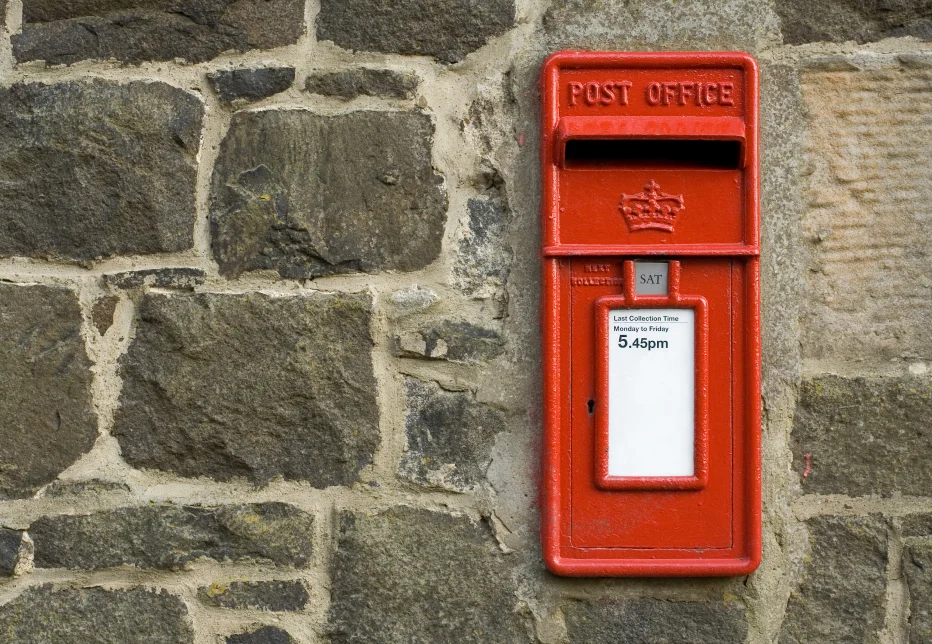



At-Home DNA Paternity Test
A DNA paternity test is a scientific method used to verify if a man is the biological father of a child. The process involves using a simple mouth swab to collect DNA samples from both the alleged father and the child.
These samples are then sent to our accredited DNA laboratory for testing and analysis. In the lab, our scientists examine the DNA samples using 24 markers to assess the relationship between the individuals tested. This method yields highly accurate results, either excluding the man from paternity with absolute certainty or confirming a paternal relationship with a confidence level typically exceeding 99.99%. Including a sample from the mother, in addition to those from the child and alleged father, generally provides more definitive results.
Your secure, password-protected results will be emailed to you as standard. Your test kit will also be sent out in discreet, plain packaging, for full confidentiality.
- 3 self-sample swab packs
- Free and discreet first class delivery via Royal Mail
- Fully accredited UKAS laboratory
How it Works

Order Your Kit
Order your DNA paternity test online above. It will arrive at your door discreetly packaged for privacy.

Collect Your Sample
Use the easy-to-follow instructions to collect your DNA sample, typically through a quick and painless cheek swab.

Send It Back
Mail your sample to our lab in the provided prepaid envelope. Our expert team will then process your sample with care and precision.

Discover Your Results
Receive your results by email and gain clear insights into your familial relationships, grounded in scientific accuracy.
What is a DNA Paternity Test?
A DNA paternity test is a scientific method used to determine whether a man is the biological father of a child. This test compares parts of a child’s DNA with that of the alleged father to see if there is a match. Because a child inherits half of their DNA from each parent, the father’s DNA contains the key to this biological puzzle.
How Does a DNA Paternity Test Work?
Step 1: Sample Collection
Our DNA paternity testing process begins with a simple, non-invasive swab of the cheek. This painless procedure can be performed on individuals of any age, including newborns.
Step 2: DNA Extraction
Once the samples arrive at our accredited laboratory, our experienced technicians extract DNA from the collected cells. We utilise advanced genetic analysis techniques to ensure the DNA is processed accurately.
Step 3: Analysing Genetic Markers
Using state-of-the-art technology, we examine specific regions of the DNA where known genetic markers are located. These markers are unique sequences in the DNA that can help confirm or deny a biological relationship. By comparing these markers in the child and the potential father, we can determine if there is a genetic match.
Step 4: Results and Reporting
Our analysis concludes with a detailed report that presents the findings in clear terms. If the DNA patterns between the child and the alleged father match at the tested markers, the likelihood of paternity is typically over 99.9%. On the other hand, a mismatch at multiple markers indicates a 0% probability of paternity. Results are usually available within a few days after sample receipt, ensuring that you receive your answers quickly and confidentially.
How accurate are DNA tests?
A DNA test is the most accurate way to determine paternity or a familial relationship, and the vast majority of our tests give a conclusive result first time. If the results are not conclusive we will contact you to discuss additional testing options. Our laboratory also offers other types of relationship testing, just contact us using the below details for more information.
Are results confidential?
Yes, under the requirements of UK Data Protection laws, all services and results are confidential. Everyone who gives a sample or has Parental Responsibility for the child in the case is entitled to request a copy of the results.
Who can consent for a child under 16 years old?
If the child is under 16 years old, consent is required from a person with parental responsibility for that child.
A mother automatically has parental responsibility for their child, and can provide consent. A father normally has parental responsibility for a child if they are named on the birth certificate, or were married to the child’s mother when the child was born. A more detailed explanation of who has parental responsibility for a child can be found here. Copies of documents to prove parental responsibility and ID must be provided. Please make sure the signature on your ID matches your signature on the consent form.
What consent is required for children (16+ years old)
No test will be undertaken without the consent of each adult to be tested (unless a court has ruled otherwise). Each adult is required to sign the Consent Form. An adult is someone who is 18 years or over. A child of 16 or 17 years of age is presumed to be capable of giving consent and may give consent as if they were an adult.
As with other biological sample procedures, consent is required before a sample of blood, saliva or hair is taken for analysis. Under the Human Tissue Act 2004 consent is also required (in England, Wales and Northern Ireland) for the use and storage of a sample to obtain scientific or medical information about an individual which relates to another person; this includes paternity testing. Each participant over the age of 16 years will need to consent for their DNA to be tested and will need to support this with a suitable copy of identification.
What is informed consent?
The person giving consent must understand what they are consenting to – the type of test and what it will show. It is also important that they have given serious consideration to the implications of finding out the results of the Test – the consequences of which may be irrevocable.
Consent must be voluntary, i.e. the person giving consent must give consent of their own free will and must not be subjected to undue influence, pressure or threat of any kind.
Consent may be withdrawn at any time. If any party to a test subsequently withdraws their consent, Assure DNA must be notified immediately and the processing of samples will be stopped.
In Scotland, a person who is 16 or over has the legal capacity to consent for themselves.
Can I withdraw my consent?
You may withdraw your consent for this test at any time prior to the issue of the report by contacting us using the details below:
Tel: +44 (0) 1603 358169
Fax: +44 (0) 1603 358161
Email: info@attolife.co.uk
Web: www.attolife.co.uk
Assure DNA is operated by AttoLife, which is a UKAS accredited testing laboratory (No. 2699) holding accreditation to international standard ISO/IEC17025 for paternity testing.
Is my at-home DNA test valid for use in court or other legal purposes?
No. Assure DNA Paternity kits CANNOT be used where the results are required for legal purposes – for example, changing a birth certificate or going to court. Please use the form below to contact us regarding legal DNA testing.
Can I return my DNA test kit and cancel my order?
Due to the nature of the product we sell, we are not able to accept any returns. However, if you have any questions please contact our customer service team on +44 01603 358169 and we will endeavour to help.
Should you cancel your order a £35 cancellation fee will apply.

